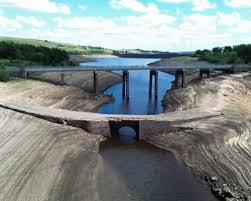Thames Water Implements Hosepipe Ban Amid Drought Conditions

Introduction
The ongoing dry spells in the United Kingdom have led to a significant water shortage, prompting Thames Water to implement a hosepipe ban across its service areas. This decision underscores the importance of sustainable water usage and highlights the increasing concerns regarding climate change and its impact on water resources.
Details of the Ban
Effective from August 2023, the hosepipe ban restricts residents from using hosepipes for activities such as watering gardens, washing cars, and filling swimming pools. Thames Water, the largest water and wastewater services provider in the UK, announced that the ban will affect approximately 15 million customers in London and the Thames Valley, areas facing particularly severe rainfall deficiencies.
The decision marks the first time in several years that a hosepipe ban has been implemented by the company, reflecting the extent of current drought conditions. Thames Water reported that its reservoirs have faced significant depletion, reaching critically low levels due to insufficient rainfall over the past few months. The company has also stressed the importance of conserving water to maintain supply for essential needs, particularly as forecasts suggest continued dry weather.
Public Reactions and Importance
Public reaction to the hosepipe ban has been mixed. While many residents understand the necessity of such measures, there are concerns about the impact on gardening and community green spaces during warmer months. Thames Water has urged customers to find alternative methods for garden care, such as collecting rainwater or using drip irrigation systems, to comply with the new regulations.
Furthermore, environmental groups have welcomed the ban, indicating that it is a positive step towards responsible water management in the face of climate changes that are becoming more severe. They emphasise that such measures are crucial not just for immediate relief but also for long-term sustainability efforts.
Conclusion
The Thames Water hosepipe ban serves as a reminder of the necessity for careful water consumption, especially during periods of drought. With climate models predicting increasingly erratic weather patterns, it is essential for both consumers and service providers to adapt to the challenges of water resource management. Experts indicate that if current weather trends continue, further restrictions may be needed across other regions, making conservation efforts even more critical. Thames Water’s actions may set a precedent for other water suppliers as the nation grapples with the realities of a changing climate.









